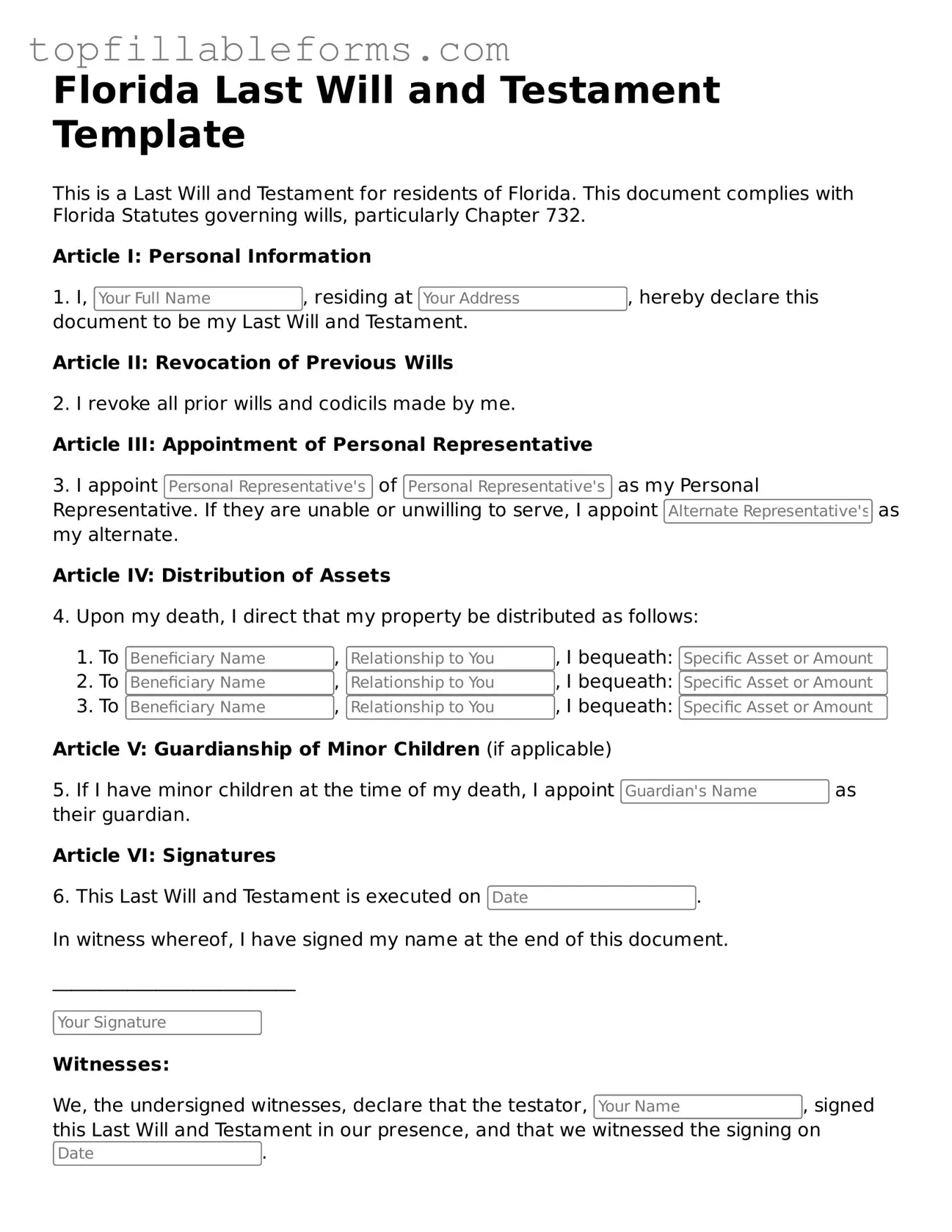Attorney-Verified Last Will and Testament Template for Florida
The Florida Last Will and Testament form is a legal document that outlines an individual's wishes regarding the distribution of their assets after death. This essential tool ensures that a person's intentions are honored and provides clarity to surviving family members. Understanding how to properly create and execute this form is crucial for anyone looking to secure their legacy in Florida.
Open Last Will and Testament Editor Here

Attorney-Verified Last Will and Testament Template for Florida
Open Last Will and Testament Editor Here
Finish the form now and be done
Finish your Last Will and Testament online by editing, saving, and downloading fast.
Open Last Will and Testament Editor Here
or
▼ PDF File
